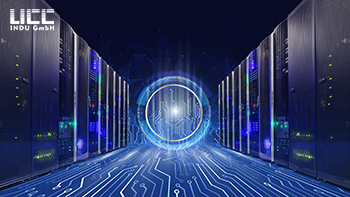 English
English
The rapid
development of artificial intelligence (AI) is profoundly changing the
landscape of storage technology. As an important infrastructure for AI
technology, storage systems not only need to meet the storage needs of massive
data, but also need to provide efficient and intelligent management
capabilities to support complex AI workloads and application scenarios. In this
paper, we will discuss the impact of AI on the development of storage
technology and its future trends from various aspects such as performance,
architectural innovation, intelligent management, and green energy saving.

AI's high demand for storage performance
AI applications (e.g., deep learning and generative AI) place unprecedented performance demands on storage systems:
- High bandwidth and low latency: AI model training and inference require fast access to large-scale datasets, which is driving the popularity of high-performance storage media such as NVMe SSDs and HBM.
- Real-time support: AI workloads often require real-time data processing, especially in autonomous driving and edge computing scenarios, where low latency becomes critical.
In addition, as generative AI models scale (e.g., ChatGPT, etc.), storage systems need to be able to handle data lakes at the hundreds of petabyte level while supporting high-frequency data read and write operations.
Innovation and Change in Storage Architecture
In order to cope with the complexity brought by AI, storage architectures are evolving to be more flexible and efficient:
- Distributed storage: Distributed file systems (e.g., Ceph, HDFS) improve system reliability and scalability through multi-node collaboration, suitable for large-scale AI data management.
- Object storage: Object storage is an important choice for AI training datasets due to its horizontal scalability and ability to efficiently manage unstructured data.
- Hybrid Cloud and Edge Computing: Hybrid cloud architecture combined with edge computing technology allows data to flow flexibly between local and cloud, reducing latency and improving resource utilization.
Intelligent Management Drives Efficiency
Artificial intelligence is not only the demand side of storage technology development, but also feeds the storage industry through its algorithmic capabilities:
- Predictive Maintenance: AI algorithms can reduce downtime by monitoring hardware status in real time, predicting potential failures and taking action in advance.
- Data Tiering and Compression: By analyzing data access patterns, AI can dynamically adjust the distribution of data across different storage media and efficiently compress it to save space.
- Automated Operations and Maintenance: Intelligent storage systems reduce the need for manual intervention and enable resource scheduling optimization, life cycle management, and other functions.
These improvements significantly increase the overall efficiency of the storage system, saving organizations significant operational costs.
Energy consumption optimization and sustainable development
As the scale of data centers expands, the problem of energy consumption is becoming more and more prominent, and AI technology helps green energy saving in the following aspects:
- Liquid Cooling Technology and Hardware Optimization: The use of liquid cooling technology and high-density hardware design effectively reduces PUE (Power Usage Effectiveness) and achieves lower energy consumption.
- Intelligent Power Management: AI-driven power optimization algorithms dynamically adjust power consumption according to workload, thus reducing unnecessary energy waste.
These measures not only reduce operating costs, but also advance the goal of sustainable development.
New storage media and future trends
To meet the specific needs in AI scenarios, new storage media are evolving rapidly:
- NAND flash and QLC SSD: NAND flash has become mainstream due to its high-speed read/write characteristics, while QLC SSD further reduces costs by increasing the capacity of a single chip.
- Vector Database and Memory Computing Convergence: Vector databases for recommender systems and similarity searches, as well as new architectures for the deep convergence of memory and computing, offer more possibilities for the future.
In addition, with the development of edge computing and IoT, the combination of AI and edge storage will become an important trend. This paradigm enables real-time decision making to be done locally and reduces data transmission latency while improving privacy protection.
Conclusion
The development of Artificial Intelligence puts higher requirements on storage technology and brings unprecedented opportunities. In the future, with the popularization of generative AI, large model applications, and edge computing, storage systems will usher in more breakthroughs in performance, capacity, intelligent management, and green energy saving. It is foreseeable that the deep integration of AI and storage technology will drive industries to achieve more efficient and intelligent development, and inject strong momentum into the digital economy.
Disclaimer: The information provided on this page is for informational purposes only. We do not warrant the accuracy or completeness of the information and accept no liability for any loss or damage arising from the use of such information.
Don't miss out on updates and special offers on our product information. Enter your email address, click subscribe and keep the inspiration and information flowing to your inbox. We promise to respect your privacy and never spam.
2025-06-16
2025-06-10
2025-05-13
2025-05-09
2025-05-07
2025-04-29
2025-04-27
2025-04-23